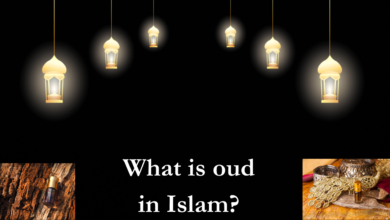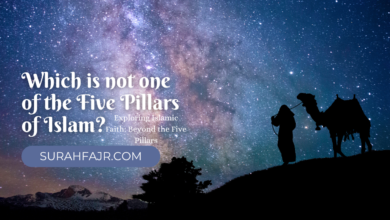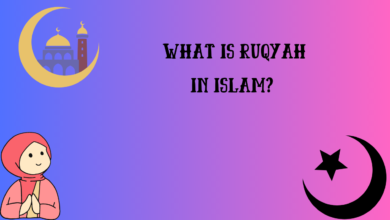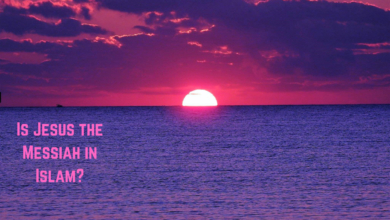
Dar Al Islam
Dar al-Islam refers to the “Abode of Islam” or the regions and territories where Islamic law (Sharia) is dominant, and Muslims can practice their faith freely.
Dar al-Harb refers to the “Abode of War” or regions where Islamic law is not prevalent, and Muslims may face restrictions in practicing their faith.
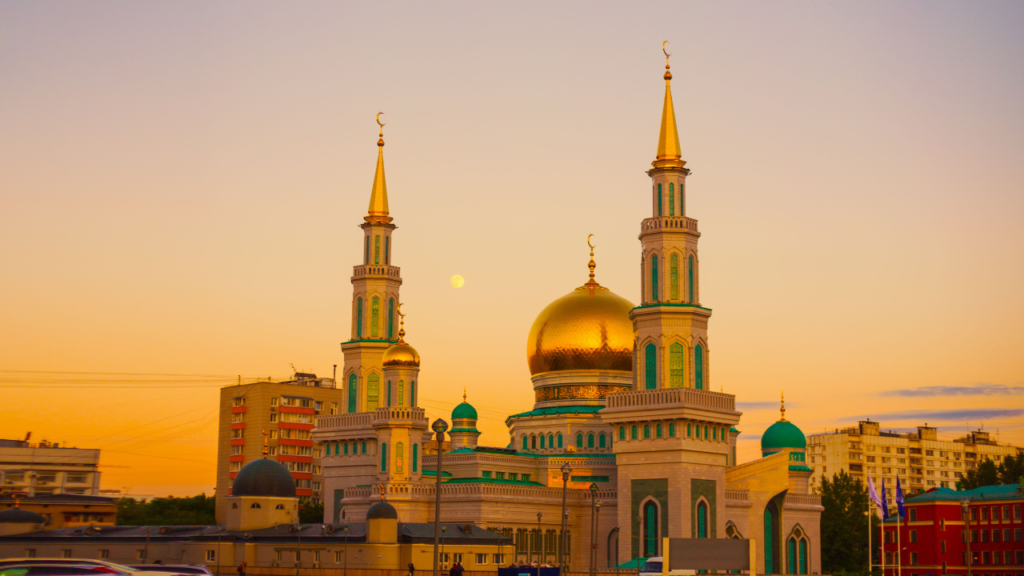
Introduction
Dar al-Islam, often translated as “The Abode of Islam,” is a concept deeply rooted in Islamic theology and jurisprudence. It refers to the geographical and conceptual space where Islam is the dominant religion and where Islamic law, or Sharia, holds sway. This article explores the significance of Dar al-Islam, its historical context, and its relevance in contemporary discussions.
Historical Background
The concept of Dar al-Islam emerged during the early Islamic period, primarily as a response to the expansion of the Islamic empire under the leadership of the Prophet Muhammad and his successors. At that time, the world was divided into two distinct realms: Dar al-Islam and Dar al-Harb, which means “The Abode of War.” Dar al-Islam referred to areas under Muslim control, where Islamic law was enforced and where Muslims could practice their faith freely. In contrast, Dar al-Harb denoted regions outside Islamic dominion, often considered hostile territories where the Muslim community faced opposition.
Key Features of Dar al-Islam
- Sharia Law: One of the defining characteristics of Dar al-Islam is the application of Sharia law, which governs various aspects of life, including personal conduct, family matters, and criminal justice. Sharia is derived from the Quran and the Hadith (the sayings and actions of the Prophet Muhammad) and forms the foundation of the legal system in Islamic societies.
- Freedom of Worship: In Dar al-Islam, Muslims enjoy the freedom to practice their faith without persecution. They can build mosques, observe religious rituals, and live their lives in accordance with Islamic principles.
- Protection of Minority Rights: Dar al-Islam historically offered a degree of protection and religious freedom to non-Muslim minorities, known as dhimmis, who were required to pay a tax called jizya in exchange for this protection. The dhimmi system, while often criticized for its discriminatory aspects, allowed non-Muslims to live and practice their faith within Islamic territories.
- Islamic Governance: In Dar al-Islam, the rulers were expected to govern in accordance with Islamic principles and provide justice to their subjects. Islamic scholars and jurists played a crucial role in advising rulers on matters of governance and law.
Also Check
Contemporary Relevance
While the historical context of Dar al-Islam remains important for understanding the development of Islamic civilization, its relevance in contemporary discussions has evolved. In the modern world, nation-states with diverse populations have replaced the historical Islamic caliphates. This shift has raised several questions and challenges:
- Pluralism: In many countries with Muslim-majority populations, there are diverse religious and ethnic groups. Navigating the principles of Dar al-Islam in a pluralistic society poses challenges related to religious freedom and minority rights.
- Interpretation of Sharia: The application of Sharia law varies widely among Muslim-majority countries, reflecting different interpretations and adaptations. Some nations implement a more conservative interpretation of Sharia, while others adopt a more progressive approach, leading to significant variations in legal systems.
- Geopolitical Dynamics: The concept of Dar al-Islam has implications for international relations, as it can influence the foreign policies and alliances of Muslim-majority countries. The perception of being part of Dar al-Islam can shape a nation’s stance on global issues and its relationships with other nations.
Conclusion
Dar al-Islam, as a concept, has historical significance in the development of Islamic civilization and the establishment of Islamic legal systems. While it continues to inform discussions about religious freedom, governance, and identity in Muslim-majority countries, its practical application has evolved in the modern era. In a world characterized by diverse societies and complex geopolitical dynamics, understanding the concept of Dar al-Islam requires nuanced consideration of its historical roots and its adaptation to contemporary challenges.
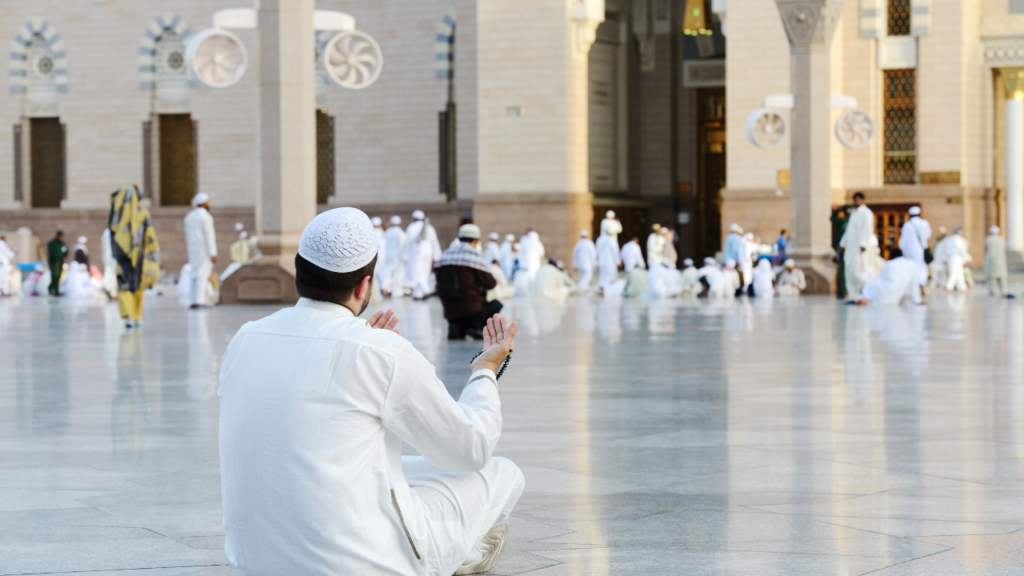
FAQs about Dar al-Islam and Dar al-Harb:
What is Dar al-Islam and Dar al-Harb?
Dar al-Islam refers to the “Abode of Islam” or the regions and territories where Islamic law (Sharia) is dominant, and Muslims can practice their faith freely.
Dar al-Harb refers to the “Abode of War” or regions where Islamic law is not prevalent, and Muslims may face restrictions in practicing their faith.
Why are these terms important in Islamic jurisprudence?
These terms are significant in Islamic jurisprudence because they help define the relationship between Muslims and non-Muslims, especially regarding issues like religious freedom, trade, and governance.
Are Dar al-Islam and Dar al-Harb fixed geographic regions?
No, these terms are not fixed geographic regions. They are conceptual and can change over time due to shifts in political, social, and religious dynamics.
Can Muslims live in Dar al-Harb?
Yes, Muslims can live in Dar al-Harb, but they may face challenges in practicing their faith openly and may need to adapt to the laws and customs of the host country.
Can non-Muslims live in Dar al-Islam?
Yes, non-Muslims can live in Dar al-Islam, but they are expected to adhere to the laws and regulations of the Islamic state and may have certain restrictions on their religious practices.
Is it the duty of Muslims to establish Dar al-Islam everywhere?
Islamic scholars have varying views on this. Some believe that it is the duty of Muslims to strive for the establishment of Dar al-Islam globally, while others argue for peaceful coexistence with other societies.
How does the concept of Dar al-Islam relate to contemporary geopolitics?
The concept has implications for the relationship between Muslim-majority countries and non-Muslim-majority countries, as well as for issues like religious freedom, international law, and human rights.
Can Dar al-Islam and Dar al-Harb coexist peacefully?
Coexistence is possible, and many Muslim-majority countries have established diplomatic and economic relations with non-Muslim-majority countries. However, tensions and conflicts can arise due to differences in values and ideologies.
Are these terms universally accepted among Muslims?
No, the interpretation and acceptance of these terms can vary among Muslims and Islamic scholars, and there is no single, universally agreed-upon definition or application.
How do modern nation-states fit into the concept of Dar al-Islam and Dar al-Harb?
Modern nation-states have complicated the traditional understanding of these terms, as they are often based on secular laws and governance rather than purely religious principles. This has led to ongoing debates within the Muslim world about the role of Islamic law in contemporary governance.
